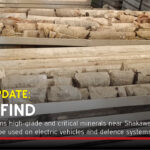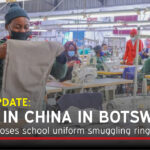An increasingly common sight on pavements and market places across the country, the popularity of bales and the sale of second hand clothes is well established in Botswana and has been for years.
With the cost of living on the rise, this informal sector looks set to enjoy a golden era as more and more Batswana turn to bales, both as a source of income and as a cheaper way to meet their clothing needs.
Originating from Europe, bales and second hand clothes imported in Botswana are mostly from United Kingdom and Turkey, while Dubai in the United Arab of Emirates (UAE) has recently emerged as another major player.
While some Batswana source directly from Europe, most obtain their bales from importers in neighboring countries, primarily South Africa and Zambia.
Although imports have been inconsistent since 2017, with Covid-19 restrictions playing a key part in this, those in the formal retail clothing sector are keeping a nervous eye on developments.
“We just can’t compete with those prices; I see this bale phenomenon posing real problems to us in the coming years,” admitted a store Manager, who works at one of the up-market chains in Game City but asked not to be named as he did not have his bosses’ permission to speak to Voice Money.
Brushing off such concerns, Chief Public Relations Officer at Ministry of Trade and Industry, Oarabile Phefo said the two sectors were not in competition with each other.
As such, no study has been conducted in Botswana to establish the possible risk that bales or second hand clothes pose to the formal retail clothing sector and the wider textile industry.
“We are not aware of the threat posed by the informal sector to the formal sector, otherwise both the informal and formal sector including both retail and those not in retail are importing clothes from neighboring countries and overseas. Further, not all bales are imported by the informal sector, and not all new clothes are imported by the formal sector,” said Phefo adding there is currently no policy that restricts importation of used, cheap or low quality clothing items.
Last year, known imports of second hand clothing stood a little shy of P6 million, coming in at P5, 758 212.83.
The bulk of this was attributed to worn clothing, which accounted for P4, 221 558.12 of the total, while worn rugs and blankets, headgear, shoes made up the rest.
The figures actually represent a significant drop from the previous year (2021), when P9.1 million worth of second hand clothing was imported into Botswana.
It continues an unpredictable, topsy turvy trend that dates back six years.
In 2017, the total value if imported second hand clothing peaked at P10.8 million while in 2018 the figure dropped to P9.2 million.
This was followed by a significant, hard-to-explain decline in value of goods imported reaching P3.9 million in 2019.
The figure remained understandably low at P3.6 million in 2020 owing to the import and travel challenges due to the Covid-19 pandemic.
Interestingly, although Covid-19 remained a factor in 2021, the numbers went up in 2021, when P9.1 million worth of second hand clothing items were imported throughout the year.


















